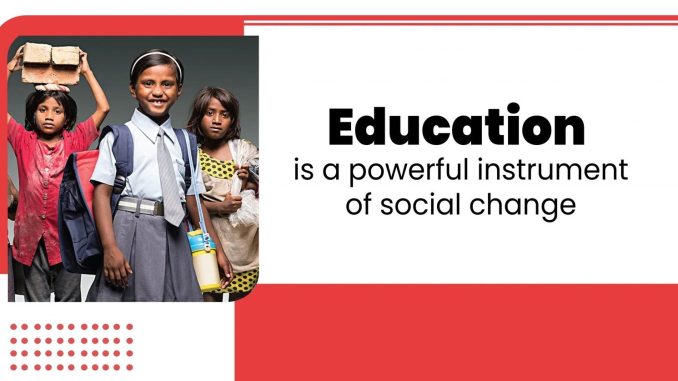
Education has long been recognized as one of the most potent forces for social change. Beyond its fundamental role in imparting knowledge and skills, education serves as a catalyst for transformation at both individual and societal levels. Whether fostering economic development, promoting social justice, or encouraging civic participation, the power of education to shape societies cannot be overstated. In a rapidly evolving global landscape, understanding how education drives social change offers valuable insights for business leaders, policymakers, and community advocates alike.
At its core, education empowers individuals by expanding their horizons and equipping them with the tools necessary to navigate and influence the world around them. This empowerment goes far beyond basic literacy or technical skills. When people gain access to quality education, they develop critical thinking abilities, cultural awareness, and ethical frameworks that enable them to question existing norms and imagine new possibilities. Such intellectual growth is essential for challenging entrenched social inequalities and sparking reform.
Take, for example, the role of education in addressing systemic poverty. In many communities worldwide, lack of access to schooling perpetuates cycles of disadvantage. Without education, individuals often find themselves trapped in low-wage jobs, unable to improve their circumstances or contribute fully to economic growth. However, when education becomes accessible and relevant, it can open doors to better employment opportunities, entrepreneurship, and upward mobility. The ripple effects extend beyond individuals to families and entire communities, breaking the chains of poverty and fostering resilience.
Education’s impact on social justice movements further illustrates its transformative power. History is replete with instances where educated activists and thinkers have led efforts to confront discrimination and advocate for human rights. The Civil Rights Movement in the United States, for instance, was fueled by leaders who understood the power of education—not just as a goal in itself but as a tool to dismantle segregation and inequality. Education nurtures awareness of rights and responsibilities, encouraging people to participate actively in shaping more inclusive societies. This dynamic underscores how education can serve as a bridge between knowledge and action, inspiring collective efforts for change.
Moreover, education contributes significantly to building democratic societies by fostering informed citizenship. A well-educated populace is better equipped to engage in political processes, evaluate policies critically, and hold leaders accountable. This level of engagement strengthens governance structures and helps prevent corruption and authoritarianism. Businesses and institutions also benefit from this environment, as stable and transparent societies create fertile ground for innovation, investment, and sustainable growth. In this sense, education not only transforms individuals but also lays the groundwork for social and economic stability.
The global push toward sustainable development highlights another dimension of education’s role in social change. As societies confront urgent challenges such as climate change, resource depletion, and social inequality, education becomes essential for preparing future generations to address these issues. Environmental education, for example, raises awareness about the interconnectedness of human actions and natural systems. It fosters values of stewardship and responsibility that are crucial for building resilient communities. Businesses increasingly recognize that sustainability is not just a buzzword but a strategic imperative, and education serves as the foundation for cultivating this mindset across sectors.
It is also worth noting that the way education is delivered can either reinforce or challenge social disparities. Traditional education systems, if rigid or exclusionary, risk perpetuating inequality by privileging certain groups over others. In contrast, inclusive and adaptive educational models aim to meet diverse needs and provide equitable opportunities. Innovations such as digital learning platforms and community-based programs are expanding access and tailoring education to local contexts. These developments illustrate how rethinking education itself can be a driver of social progress, fostering diversity and inclusion in meaningful ways.
For businesses, understanding the power of education in social change offers both responsibility and opportunity. Corporate social responsibility initiatives increasingly focus on education-related projects, recognizing that investing in education builds stronger communities and markets. Furthermore, companies that prioritize continuous learning and employee development tend to be more innovative and adaptable. This creates a virtuous cycle where education supports business growth, which in turn fuels further social advancement.
Ultimately, the power of education in social change lies in its ability to unlock human potential and connect individual aspirations with collective progress. It shapes how people see themselves and their place in the world, opening pathways to opportunity and justice. As the challenges facing societies grow more complex, leveraging education effectively becomes even more critical. This requires collaboration among governments, educators, businesses, and communities to create learning environments that are inclusive, relevant, and forward-thinking.
In reflecting on education’s profound role, it becomes clear that it is not merely a means to an end but a foundational pillar for building better societies. Its influence touches economic development, social equity, political engagement, and environmental sustainability, intertwining these elements into a coherent vision of progress. By embracing the transformative potential of education, we can foster a world where knowledge empowers change and where individuals and communities alike thrive in an ever-evolving landscape. This perspective challenges us all to value and invest in education—not only for personal success but as a shared pathway to a more just and prosperous future.